24 Hours Hotline: +86 137-3541-1378
Email:xian@tripstoshanghai.com
24 Hours Hotline: +86 137-3541-1378
Email:xian@tripstoshanghai.com
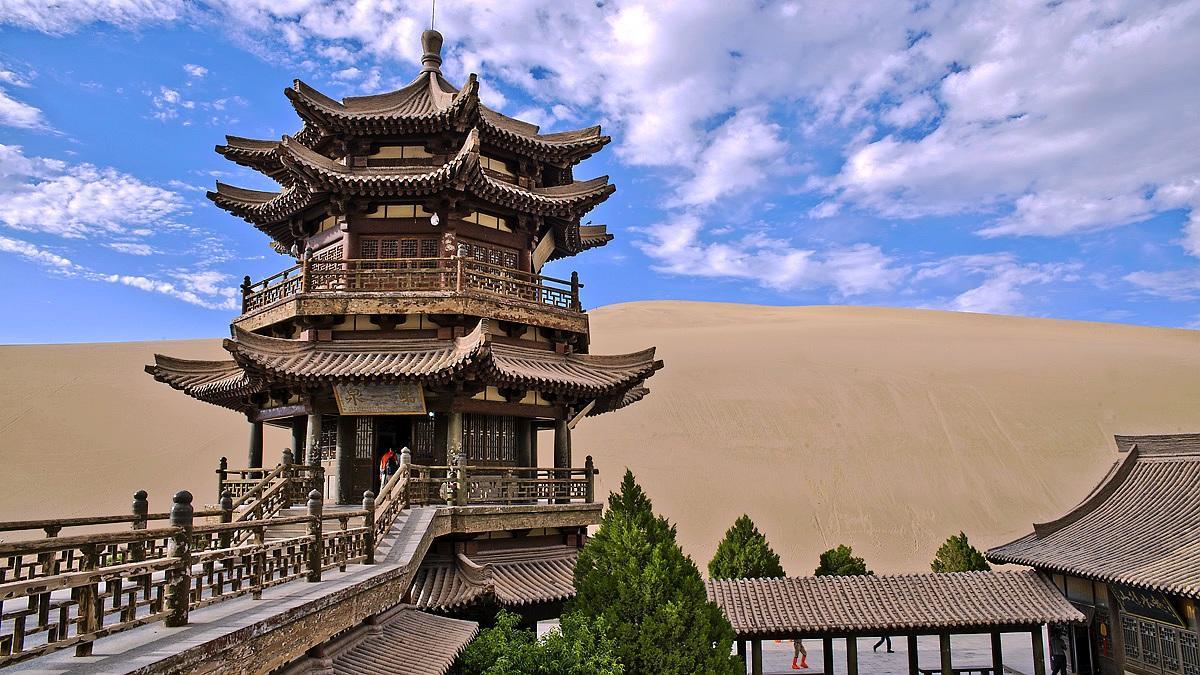 Overview
Overview
Dunhuang, situated in north-west China, is situated at a point of vital strategic and logistical importance, on a crossroads of two major trade routes within the Silk Road network. Lying in an oasis at the edge of the Taklamakan Desert, Dunhuang was one of the first trading cities encountered by merchants arriving in China from the west. It was also an ancient site of Buddhist religious activity, and was a popular destination for pilgrims, as well as acting as a garrison town protecting the region.
Basic Information
Dialing code: (+86) 0937
Zip code: 736200
Area: Dunhuang has an area of 31200 square metres
Main attractions in Dunhuang: Mogao Caves,Sand Dunes/Yueyaquan National Park,Huyang Forest,White Hourse Pagoda,Piper bounce statue,Yumenguan
Population: about 20 Million
Administration
Duhuang can be divided into 6 tow ns and 3 villages administratively.
Location
Dunhuang is located at the western end of Hexi Corridor in Gansu Province in northwest of China. It is 2000 kilometers west of Beijing, right on the silk road that caravans would take to get from China to the Middle East.
Climates
Dunhuang is located in the intersection of Gansu, Qinghai and Xinjiang. Because it is deep inland, blocked by high mountains and far away from the humid ocean air flow, so Dunhuang belongs to the extremely arid continental climate, with three main characteristics: First, sufficient sunshine, According to the annual average climate data, the annual average sunshine hours in Dunhuang reached 3200 hours. Second, dry and less rain. Third, there are four distinct seasons. It is warm and windy in spring, hot in summer, cool in autumn, cold in winter and large temperature difference between day and night.
Public City Transportation
Downtown Dunhuang is not large, and there are only four city-bus routes running along fixed lines. They start from the urban area and stretch into the countryside in different directions. Buses are mostly of a medium size. They operate between the hours from 07:00 until 22:00 every day. And it is very convenient and easy for tourists to take a taxi in the city. There are many taxies driving around the city, or parking at the airport, long-distance bus station, railway station, hotels and the historic sites etc.
Economy
Dunhuang economy was largely based on agriculture, with wheat apparently the dominant crop. Animal husbandry was relatively unimportant, probably be cause of the lack of accessible pasturage, even though the sources mentions some of the standard domestic animals (goats, sheep). Since agriculture (in fact, survival) in the region depended on irrigation, considerable attention was paid to developing and maintaining the system of canals. In the first half of the eighth century, there were seven major irrigation canals in the region. Immediately after the liberation of Dunhuang from Tibetan rule in the middle of the ninth century, one of the first measures of the regional commander was to reconstruct and improve the irrigation system.
Tourism
Dunhuang is one of the most famous tourist cities in Northwest China. Located at the crossroads of two major trade routes within the silk road network, it has important strategic and logistics significance. As the core city of Chinese and Western culture, it welcomes a large number of eastern and Western tourists every year. Its scenery is hard to describe in words. Whether it's history, religious culture, or natural landscape, it's the most worthy place for all tourists.
History
Dunhuang, located at the western end of the Gansu (Hexi) Corridor and at the eastern end of the Taklamakan Desert, it was very important historically on ancient China Silk Road. For many periods of Chinese and Inner Asian history, it marked the western limit of direct Chinese administrative control and military authority. Located near one of the important nodes of the routes across Eurasia, Dunhuang experienced a variety of cultural influences. For example, perhaps the most important early translator of Buddhist scriptures in China, the monk Kumarajiva from Kucha in the Tarim Basin, worked at Dunhuang before he went to Ch'ang-an. The famous Buddhist monks Faxian and Xuanzang passed through Dunhuang en route to (or from) India in their quest for new knowledge of Buddhism at its source. We know that Soghdian merchants from Ferghana were there, as were Nestorian Christians. During the period of the Tang Dynasty, for many decades Dunhuang was under Tibetan control; later Uighurs and others controlled the region.
Art & Literature
In the first instance today when we think of Dunhuang, we think of the Mogao Caves near the town, a complex of hundreds of Buddhist sanctuaries, a great many of which contain remarkably well preserved religious art from about the late fifth century (CE) on. At Mogao in 1900, a local caretaker monk uncovered a treasure trove of manuscripts and paintings, most of which ended up in European collections after Stein and others purchased or otherwise obtained them. Toward the middle of the twentieth century, the systematic study of the art and inscriptions in the caves began, providing additional information on local culture and history. Apart from the evidence at Mogao, considerable written material for the early history of the region has been found in the ruins of Han-era fortifications. Taken together with the information in dynastic historical records, these sources often allow much more detailed study of the Dunhuang region than can be obtained for many other areas of China.
Prev: Dunhuang History
Next: No next link
Wechat: Chinaprivatetour
24 Hours Hotline:
+86 137-3541-1378
* Authentic Experiences: Genuine local experiences that immerse you in the true essence of Xi'an and beyond.
* Safety First: Highest safety standards with secure activities and reliable transportation.
* Customizable Tours: Flexible itineraries tailored to your interests and needs.
* Local Expertise: In-depth knowledge of Xi'an and China, offering exclusive insights.
* Professional Guides: Licensed bilingual guides with over 5 years of experience.
* Comfortable Travel: Experienced drivers and well-maintained vehicles for a smooth journey.
* Sustainable Tourism: Commitment to responsible tourism and supporting local communities.
* Customer-Focused: Personalized service and continuous improvement based on your feedback.
* Free Cancellation: Cancel up to 24 hours before travel for flexibility and peace of mind.
* 24/7 Support: Round-the-clock assistance for any questions or help needed.
(Your Privacy is Protected)
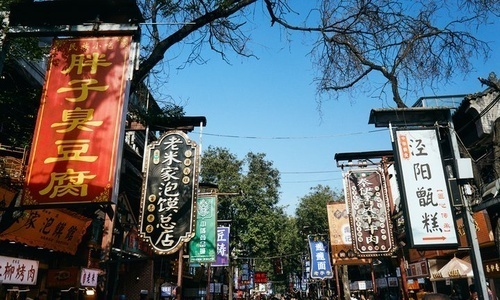 Xi'an Muslim Quarter Travel Guide: Street Food, Culture & Nightlife
Xi'an Muslim Quarter Travel Guide: Street Food, Culture & Nightlife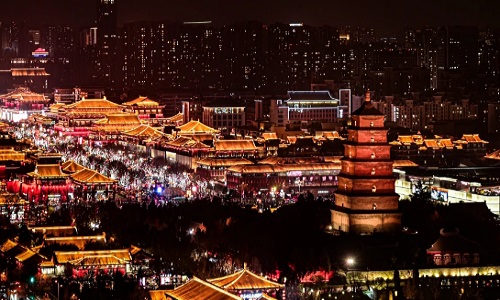 Exploring Grand Tang Mall Xi'an: Shopping, Dining, and Entertainment in the Heart of the Ancient City
Exploring Grand Tang Mall Xi'an: Shopping, Dining, and Entertainment in the Heart of the Ancient City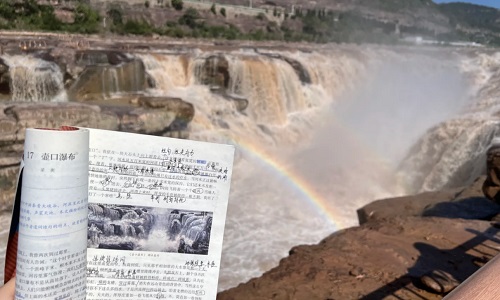 Hukou Waterfall Travel Guide: Visiting the Yellow River’s Most Spectacular Hukou Waterfall from Xi'an
Hukou Waterfall Travel Guide: Visiting the Yellow River’s Most Spectacular Hukou Waterfall from Xi'an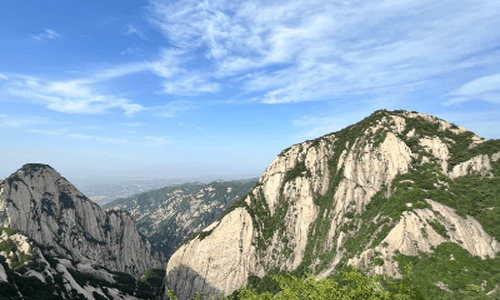 Huashan Mountain Travel Guide: Hiking the Most Dangerous and Beautiful Peak in China
Huashan Mountain Travel Guide: Hiking the Most Dangerous and Beautiful Peak in China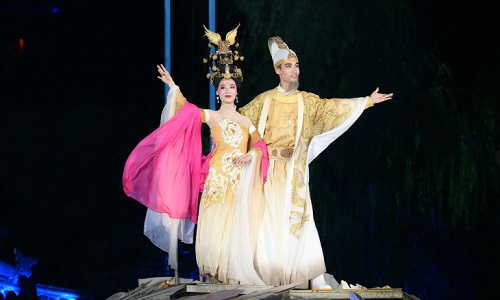 The Song of Everlasting Sorrow: A Timeless Tale of Love and Tragedy in Xi'an
The Song of Everlasting Sorrow: A Timeless Tale of Love and Tragedy in Xi'an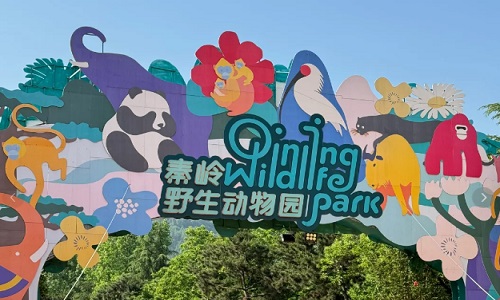 Xi’an Qinling Wildlife Park Travel Guide: Explore the Best Zoo Experience in Xi’an
Xi’an Qinling Wildlife Park Travel Guide: Explore the Best Zoo Experience in Xi’an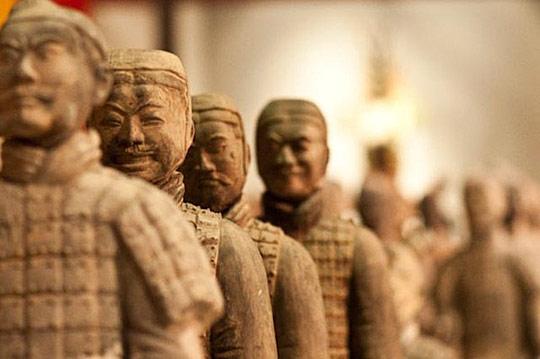 Discover the Terracotta Warriors in Xi’an: A Complete Guide to China’s Ancient Army
Discover the Terracotta Warriors in Xi’an: A Complete Guide to China’s Ancient Army 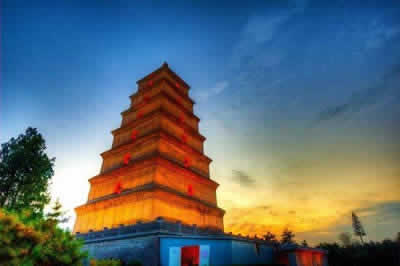 Big Wild Goose Pagoda
Big Wild Goose Pagoda1 to 1 tailor-made service from our professional travel advisors for the most sophisticated
Constantly excellent reviews for attraction, hotel and service Competitive price
Local experts provide quality tours Best selected knowledgeable local guides Authentic local restaurants
7*24 hours available to create you a worry-free tour. No Hidden Fees and absolutely no pressure to buy. Secured









Copyright © 2017 www.xianprivatetour.com All rights reserved. 浙ICP备18056007号-6